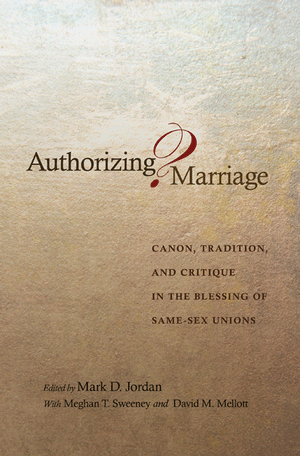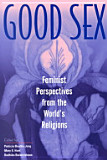In the volume Authorizing Marriage?: canon, tradition, and critique in the blessing of same-sex unions, authors from the Jewish and Christian perspectives were asked to reflect on a set of questions regarding voices within the Judeo-Christian canon which may speak to questions of same-sex relations (including erotic union), bases for justifying same-sex unions from scripture, liturgical practice and religious law, and the possible ways of using exegesis and theological reflection to legitimate any new same-sex constructs (Jordan 1). The authors approach their work from several points of view: biblical interpretation, Greek philosophical influences within Rabbinic Judaism and Christianity, liturgical rites associated with marriage, and theological assessments of current discourse surrounding same-sex relationships (Jordan 1-2). What follows are a few reflections sparked by the essays in this volume.
Tag: Judith Plaskow
Reflections on Good Sex
The essays in the compilation Good Sex: Feminist Perspectives from the World’s Religions include the views of several Jewish and Christian feminist scholars. Though not all of the authors identify as lesbian, they share similar views and concerns. It is interesting to note that in many ways their unity is found more in their shared gender identity than in their sexual preferences. This is the first feature of these essays that I found striking: there is no analogous "masculist" movement nor a shared set of concerns among gay and straight men that would provide an overarching backdrop in a male-oriented conversation. However, as I reflect on this a possible explanation appears to be that women, whether gay or straight, are able to identify with each other’s oppression within our framework of power dynamics. Straight men, who most often occupy the position of privilege in our society, are less apt to identify with the oppression faced by gay men, as to do so could result in a loss of privilege.

